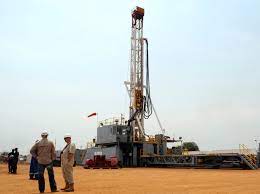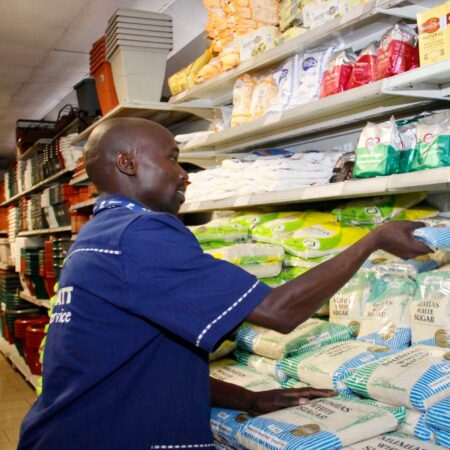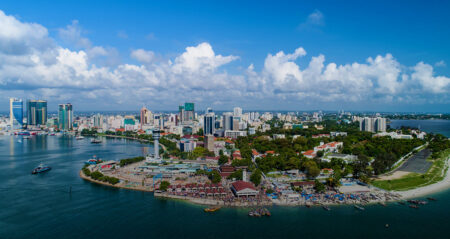- African nations are harnessing it’s push toward the oil and gas industry despite global push to reduce greenhouse gasses
- Oil-rich nations are keen to explore and pump out various fossil fuels as the rest of the world moves toward being Carbon Neutral
- COP 26 focused on resolutions for the world, but that was mainly the developed world, what about Africa?
Part 1: The fuel of modern-day civilization
The backdrop of modern-day development as embodied in Europe, America, Asia and the Arab Peninsula all lies in fossil fuel, crude oil, black gold. It is the burning of fossil fuels that runs our engines and powers our economies. Indeed, we owe our modern civilization and advances to fossil fuel.
Great! What is not so great is the cost that comes with burning fossil fuels. The primary cause of current climate change, altering the Earth’s ecosystems and causing human and environmental health problems is the burning of fossil fuels – Berkley University: Understanding Global Change, Burning of Fossil Fuels.
For this reason, the International Energy Agency (IEA) targets phasing out fossil fuel subsidies as one of four policies to keep the world on track for the intended 2 degree Celsius global warming target that is to be met.
Consider this statement: “…it has estimated that even a partial phase-out by 2020 would reduce greenhouse gas (GHG) emissions by 360 million tonnes, which equates to 12 per cent of the reduction in GHGs needed to hold a temperature rise to 2 degrees.” That was seven years ago in 2015.
That year, 2015, 196 Parties to the Paris Agreement committed to transforming their development trajectories towards sustainability and called for limiting global warming to well below 2°C – ideally 1.5°C – above pre-industrial levels, reads a UN report titled ‘Take urgent action to combat climate change and its impacts.’

The report further guides, ‘to meet these goals, global carbon dioxide emissions need to be reduced by 45 per cent by 2030 from 2010 levels, and reach net-zero emissions by 2050’.
Unfortunately, ‘Greenhouse gas concentrations reached new highs in 2020, with globally averaged mole fractions of CO2 exceeding 410 parts per million.’
That is the dilemma. The world needs to stop, or at least reduce, the burning of fossil fuels, the very core of our everyday life activities. When you drive to work or take the bus, you are burning fossil fuel; when you buy any product in a supermarket chances are it was made in a factory plant whose engines burn fossil fuel. Alas, even the fridge you use to store your food, and the air conditioner to cool your home, they all emit greenhouse gases further exacerbating climate change.
Africa, home to the world’s poorest economies, has discovered oil—fossil fuel that, as it did for Europe and America—can ignite its engines and bring about development to rid the continent of centuries of abject poverty.
Even with the understanding of these facts, the developed world is hesitant to turn off the furnaces to stop burning fossil fuel. Understandably so, for by doing so it would bring to an end modern life as we know it.
Or maybe not!
https://theexchange.africa/investing/africas-development/how-aid-agencies-can-save-millions-spent-on-fossil-fuels/
Alternative fuel options, transition to green economies
Part 2: Man-made natural disasters
The biggest argument on the table is for Africa to forgo fossil fuel as an old detrimental source of energy despite the fact that it brought development to the rest of the world.
The argument is simple: a hundred years of European and American development has brought the world to the brink of extinction, and Africa knows this fact first-hand. From changing rainfall patterns to disappearing glaciers, floods and droughts, the list continues, one natural man-made disaster after another.
The West developed by burning fossil fuels and in so doing it has almost completely destroyed the world. In fact, had Africa gone down the same path at the same time, the extinction we are dreading would long have been upon us.
It seems to be a case of instant gratification. Africa’s economies want to burn fossil fuel to attain unarguably quick payment returns. On face value it is all in the good name of development, ending poverty or, at the very least, improving lives—a very noble cause.
Should Africa proceed on this instant gratification path a morbid, blunt parable may very well be our fate: “jump a stream of urine only to land in a pool of …”
However, as it turns out, it is not Africa that is so adamant to burn fossils; rather it is the West that is stubbornly unyielding to fund green economy transition for Africa.
The necessity of burning fossil fuels was an unavoidable reality during the industrial revolution because clean energy was not an option; the technology was simply not there. However, if there is anything we should be thankful for, for our years of fossil fuel burning, is the fact that we have in that time learned and developed alternative clean fuel sources and the means to harness them.
From solar to wind, and even the transitional relatively clean fossil fuel, natural gas, is on the table. We have the technology to phase out fossil fuels. However, if the West will not invest in Africa’s clean energy transition, it is inevitable that countries will seek to earn through the production of fossil fuels. As a matter of fact, all the oil wells and the pipes that lead out of them, all lead to the ports, to feed the West’s unquenchable thirst for fossil fuel, for modern amenities at the cost of the future of the world.
The issue is not lack of knowledge of these facts, rather a commitment to follow through on agreed to action plans. Let us go back seven years ago…seven is actually the exact number of distinctive air layers to get to the Ozone layer that we are destroying with the burning of fossil fuels, but I digress.
Back in 2015, the West pledged US$100 billion to support Africa’s fight against adverse climate change effects. The funding was never released.
30 years of talks, 2 degrees temperature cap still elusive
Part 3: Failed commitments
Last year, the 26th Conference of the Parties World Climate Summit (COP26) was held. I reiterate, for the 26th consecutive year, meetings about effects and resolutions to resolve climate change have been held, the latest was last year.
Let us view it in the eyes of the United Nations that summons these meetings. For nearly three decades the UN has been bringing together almost every country on earth for global climate summits – called COPs… explains UKCOP26.org
The organization finishes the description on a high note… ‘…in that time climate change has gone from being a fringe issue to a global priority.’
This global priority is hinged on the West’s commitment to (1) cut their emissions and (2) support Africa (and other developing areas) to transition to clean energy and mitigate ongoing climate change effects.
If the views of parties to the COP26 are anything to go by, consider this:
The Ministry of Foreign Affairs and East African Cooperation used COP26 to remind partners of the pledges they made in Paris at the COP21, six years prior i.e. the US$100 billion pledge to help tackle Africa’s adverse climate change effects.
In the words of Tanzania’s envoy to the ministry, Minister Liberata Mulamula said: “We will use the COP26 platform to let the world know how Tanzania is tackling climate change but also to spread the message that they promised to help our countries … but, they have not fulfilled their promise and, instead, we are setting new targets.”
As it turned out, at the close of COP26 no funding commitment was made, only pledges, one of which is to hold another meeting to again discuss potential funding for renewable energy next year in Egypt.
It is no wonder, Africa is intent to capitalize on its new find of fossil fuels and is against the proposed subsidies, simply because, well, the commitment to fund clean energy and climate change mitigation from the very nations that have overtly caused it, is simply not there.
That despite what has already been contributed…but that is a subject for another article.
For you, dear reader, would do well to learn what individual steps you can take to reduce your own carbon footprint, hint, car-pooling is one.
https://theexchange.africa/uncategorized/burning-zimbabwe-economy-spoils-coup-celebrations/











